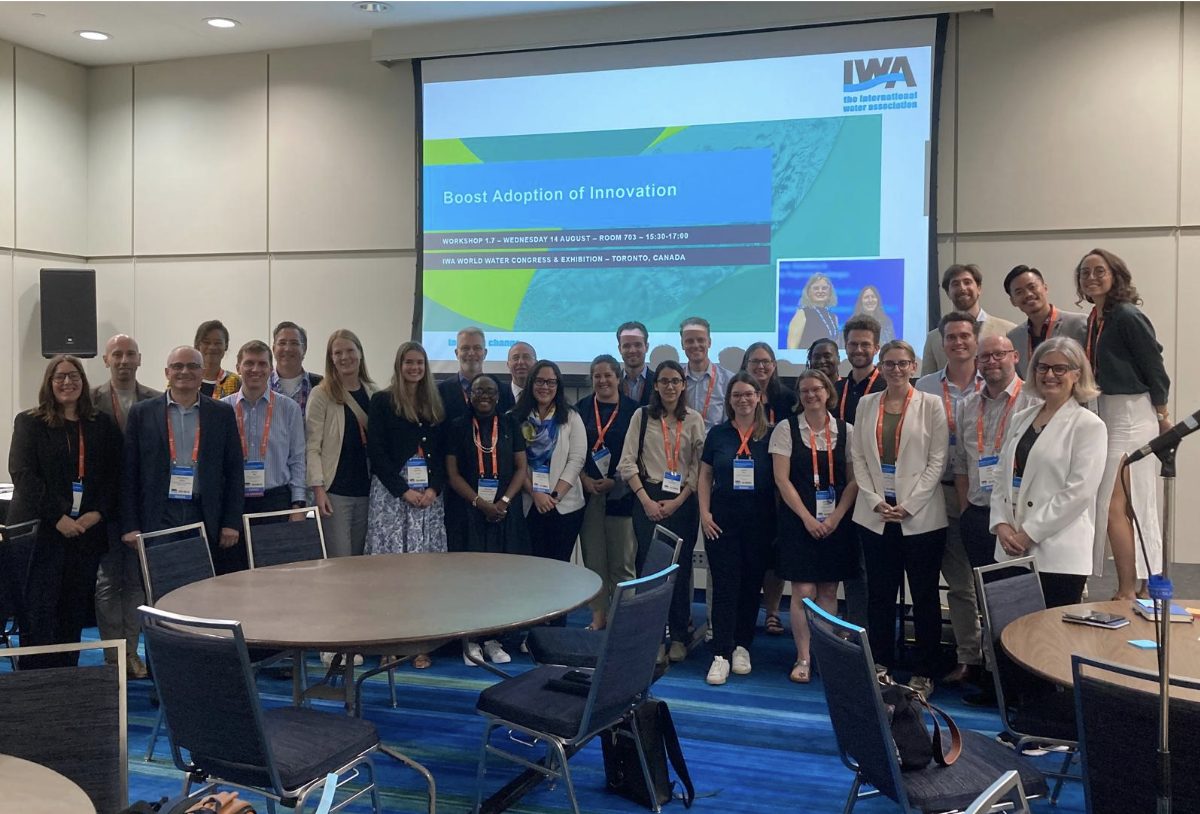ECLAC highlights the challenges and opportunities of water in the face of climate change at the IWA seminar
Work area(s)
Topic(s)
Dr. Silvia L. Saravia Matus, Economic Affairs Officer in charge of Water Affairs at ECLAC, participated on December 5 in the seminar organized by the International Water Association (IWA). Her presentation addressed the challenges and opportunities posed by climate change in water resource management in Latin America and the Caribbean, emphasizing the need for effective governance, sustainable investments, and adaptation strategies.
On December 5, Dr. Silvia L. Saravia Matus, Economic Affairs Officer in charge of Water Affairs at ECLAC, participated in the seminar titled “Water Security: Governance, Economic Development, and Finance” organized by the International Water Association (IWA).
During her presentation, Dr. Saravia Matus highlighted how extreme events and pollution profoundly affect water resources in Latin America and the Caribbean, a region where 88% of disasters are water-related and exacerbated by climate change.
Among the main points discussed, Dr. Saravia Matus outlined the impacts of droughts, floods, and storms on water security, agricultural production, public health, and local economies. For example, she mentioned that droughts have affected more than 53 million people since 2000, causing economic losses exceeding $22 billion. Additionally, she emphasized how water pollution remains a critical issue, with only 45% of wastewater being safely treated.
Dr. Saravia Matus also stressed the urgent need to significantly increase investments in water infrastructure, noting that closing the gaps in access to water and sanitation in the region would require 1.38% of the regional GDP annually over a decade. In this context, she highlighted the importance of strategies such as circular water management, implementing clean technologies, and promoting innovative financial solutions like green bonds and revolving investment funds.
Finally, during her presentation, she emphasized the need to strengthen water governance through robust regulatory frameworks, inclusive participation mechanisms, and enhanced intersectoral coordination. Dr. Saravia Matus concluded her remarks by underscoring that investing in water management not only addresses the effects of climate change but also serves as a driver of sustainable and inclusive development in the region.
ECLAC’s participation in this seminar reinforces its commitment to developing comprehensive policies and promoting initiatives that ensure equitable and sustainable access to water across Latin America and the Caribbean.
Related content

ECLAC’s Participation in the IWA Congress 2024: Advocating for Circular Economy in Water Management
From 11 to 15 August 2024, in Toronto, Canada, ECLAC actively participated in the International Water Association (IWA) World Water Congress. Dr. Silvia Saravia Matus, Economic Affairs Officer in the…